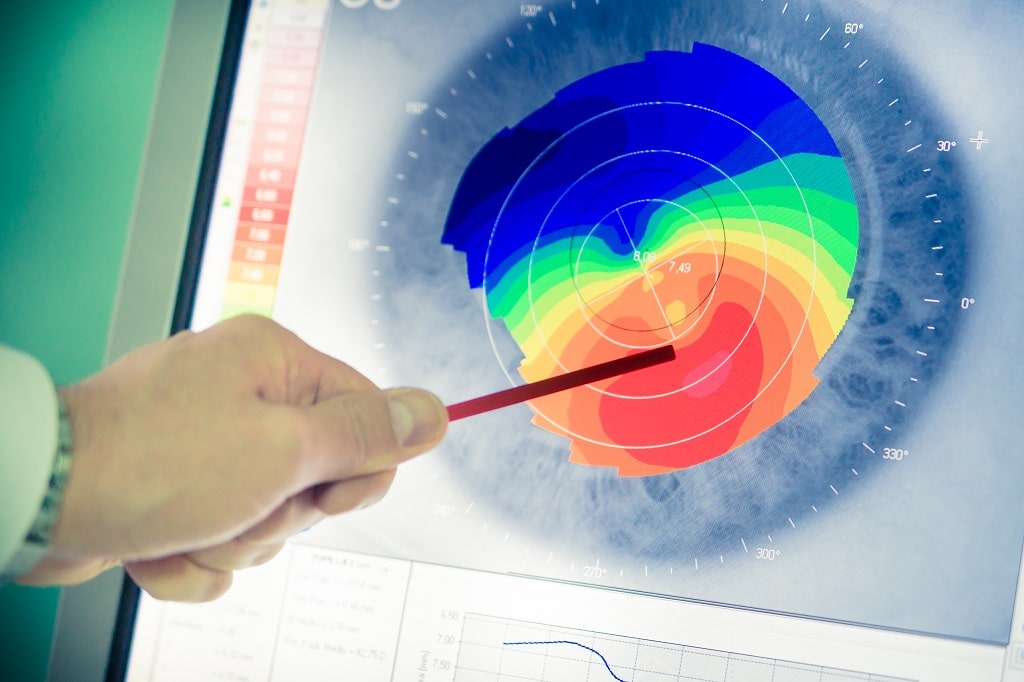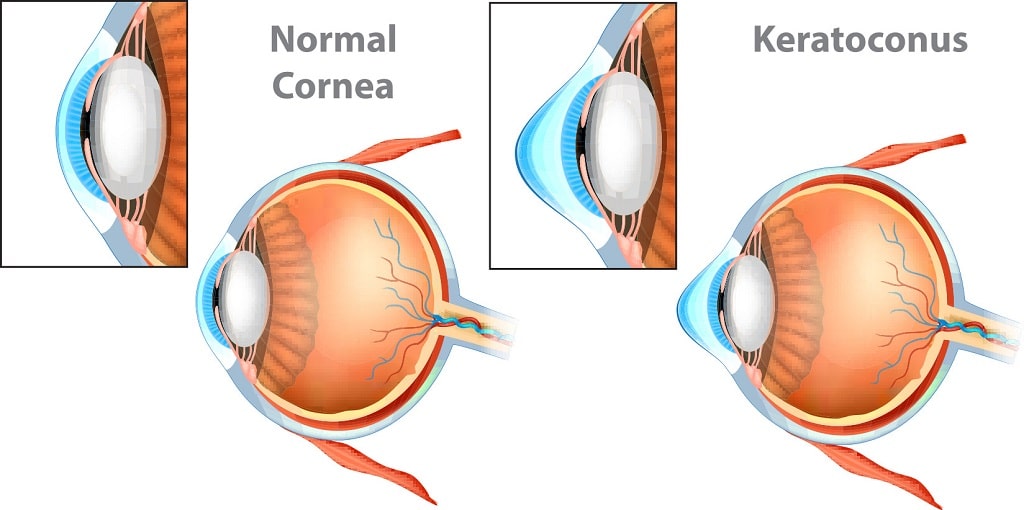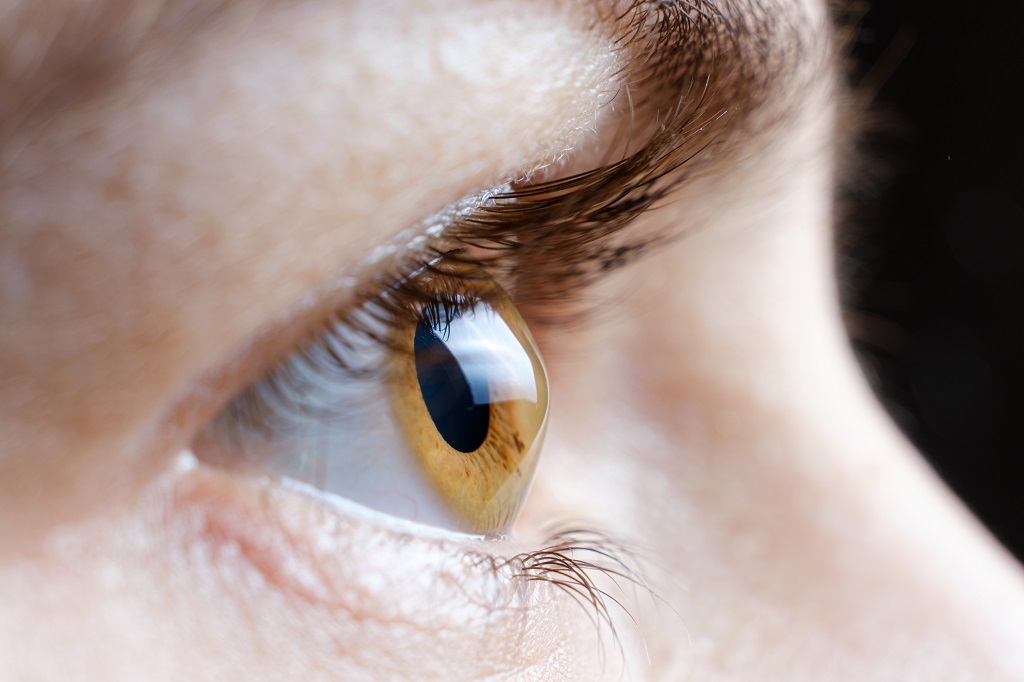
Updated: March 15, 2023

Does keratoconus cause blindness or blurred vision? If you’ve heard about or been diagnosed with a keratoconus condition, you might have questions about long-term vision loss. This is an eye condition that causes your cornea to become thin and cone-shaped over time. As keratoconus progresses, it leads your cornea to become cone-shaped and your vision becomes distorted, bulging, and misshapen. If you get keratoconus diagnosed, it’s important to seek treatment with your eye doctor to make sure it doesn’t progress.
Typically, keratoconus occurs in the following scenarios:
As the corneal tissue begins to wear thinner and even become misshapen, your eye doctor will work with you to get your keratoconus treated and addressed. You might be wondering, can you go blind from keratoconus? In reality, as your cornea thins over time and the eye disease progresses, it can lead to deteriorated vision.
It is usually a slow progression that impacts your cornea over years and can lead to scarring, resulting in blurry or distorted vision that can not be adequately fixed with glasses or soft contact lenses.

So how fast does keratoconus progress? In most patients, clear vision begins to deteriorate in the late teens and progressively gets worse over a period of 10-20 years. At this point, the corneal shape begins to stabilize according to the U.S. National Library of Medicine.
In this early and mild keratoconus stage, it’s common to experience light sensitivity and blurred vision. Over time, the cornea will begin to thin out and the symptoms will worsen which can cause visual impairment. Some patients notice that one eye progresses quicker than the other and there might be different symptoms in each eye. The thin outer layer of the eye known as the cornea might get worse in one eye more than the other.
Late-stage or progressive conditions of keratoconus can result in irregular astigmatism that ultimately leads to nearsightedness, astigmatism, significant vision distortion, or even complete blindness.
In many patients, keratoconus is a slow, progressive condition but it can abruptly get worse in severe cases, causing the corneal tissue to undergo sudden swelling and then scar. If early detection is possible, this is always the best route to catch it in the early stages.
Over time, those who experience keratoconus blindness may experience a range of side effects, particularly if the need to treat keratoconus is ongoing. Without the right treatment, the chances of developing a bulging cornea or a thinning cornea are higher. Once these side effects take place, they are irreversible and it’s impossible to completely restore vision.
Although patients may not experience complete blindness, vision will continue to get worse over time. Another potential side effect is corneal scarring. This impacts the cornea so severely that it isn’t possible for patients to wear contact lenses. Even using glasses will only provide minimal assistance to those patients who have been severely affected.
Corneal crosslinking with riboflavin is an FDA-approved procedure. The hope is that the procedure will stablize the corneal exactly where it is currently. Crosslinking can not reverse the effects of keratoconus that have already occurred.

If you’ve been diagnosed with keratoconus, make sure to be as proactive as possible in protecting your vision. Make sure to get regular eye exams from your doctor to preserve your vision as keratoconus can lead to blindness. Many eye doctors are highly experienced in this treatment and may recommend speciality contacts lenses if your condition is advanced. Corneal crosslinking may be an appropriate treatment for unstable corneas. Lastly corneal transplantation may be recommended for advanced cases that can not be helped with specialty contacts or crosslinking.
Rather than seeking to improve vision once your doctor has already been able to diagnose keratoconus, it’s better to stay proactive in protecting your eyes. If you think that you’re in need of vision correction or corneal transplants due to keratoconus, our team at Discover Vision Centers is here to help you. From prescribing rigid contact lenses to conducting a corneal transplant, we can help minimize the risk of vision loss. Schedule an appointment with our keratoconus doctors today.